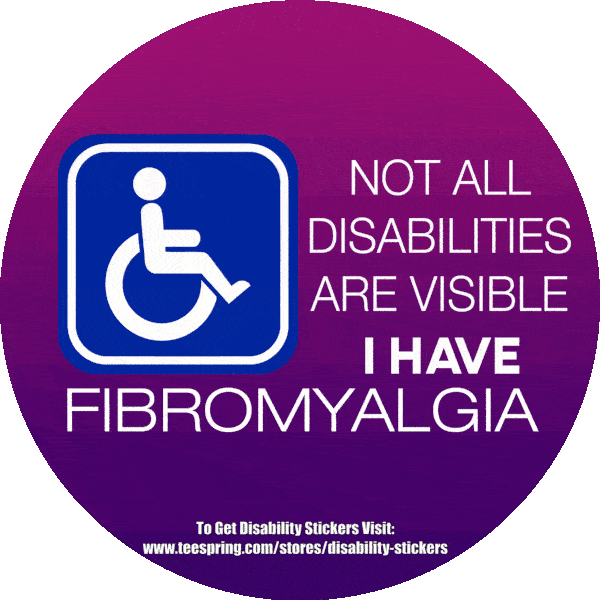When you thought you were getting a handle on managing your fibromyalgia, fibromyalgia flare-ups come to remind you about the condition. It can always seem to get worse for no reason. Fibromyalgia creates magnified painful sensations throughout the body by affecting the way the brain processes pain signals.
These sensations are commonly referred to as “flare-ups” and involve widespread musculoskeletal discomfort combined with a nasty blend of fatigue, sleep loss, memory issues and mood swings. When fibromyalgia pains flare up, every activity can seem more difficult. All people experience flares differently and there can be different triggers depending on the person. A person who is experiencing flare up might seem to have a aggravation of pain in their hips or back. The nature of fibromyalgia is that it’s a pain amplification syndrome, and that pain can shift.
A flare is the worsening or exacerbation of symptoms that already exist. While a person suffering from fibromyalgia might go through certain symptoms on a daily basis, when symptoms deteriorate or happen more recurrently for a period of time, it is called a flare. People with fibromyalgia do not all experience flares the same way. The sudden intense pain and fatigue can immediately cancel any plans you had for that day, or even week.
They face much more difficulty to cope up with fibromyalgia. This flare up can take the form of especially severe pain or increased fatigue. So essentially, a fibromyalgia flare up is just a period of time when the basic level of pain, fatigue, and mental fog you normally feel with fibromyalgia is much worse that it usually is. So if you unexpectedly feel much more tired than normal, feel extreme pain in a certain part of your body, or feel like you focus your attention on anything, the chance is that you are having a fibromyalgia flare up.
While no one is sure exactly what is happening during a fibromyalgia flare up that makes these symptoms worse, there are definitely a number of things that seem to trigger them. Unfortunately, modern medicine has not yet been able to close the book on this condition, and while there are currently no known cures for fibromyalgia, there are still some helpful ways to help lessen the symptoms and rebound back from flare-ups. Flare-ups can happen if a person with fibromyalgia is stressed or under a lot of pressure and they come without any warning.
A flare can last anywhere from a few days to weeks at a time. Changes in Diet, Physical or psychological stress, Schedule, and sleep are some factors that may initiate flare ups. Stressful events, surgery, or accidents can make fibromyalgia symptoms worse. A lack of sleep or doing too much or too little exercise can also trigger flare up.
Tips to avoid flare ups
Triggers for fibromyalgia vary from person to person. Maintaining a register of activities, meals, sleep times and duration, and symptoms of fibromyalgia may help to recognize particular triggers and causes of flare ups. Acupuncture is an ancient Chinese healing technique which dates back at least 3,000 years, and was commonly used to provide relief from muscular pain.
Acupuncture is known to promote natural self-healing, improved blood flow and modifies the levels of neurotransmitters in the brain. For these reasons, it is currently used to treat a wide variety of health conditions that cause chronic pain. Too much exercise can also trigger flare ups. It is believed that, exercise is great for helping handle your fibromyalgia, but make sure not to exert yourself too hard.
Too much exertion can trigger flare ups. Walking, biking, swimming, and water aerobics are some of the way to cope up with fibromyalgia flare ups. Maintaining good posture habits, stretching, and relaxation exercises may also help For maximum effect, it is recommended that people with fibromyalgia begin with gentle exercise, such as walking, and build up endurance and intensity slowly.
Begin with your medication. Take it regularly anything that is prescribed by your doctor. Don’t skip any doses, even if you feel like you’re getting better. A flare can suddenly get worse after it begins to feel better. It’s also helpful to take medication if you feel like a fibromyalgia flare up might be coming on.
It’s better to be safe than sorry. Physical therapy aims to improve an individual’s range of movement and strengthen their muscles through a variety of structured exercises. Physiotherapists can design programs to help manage specific symptoms on a case-by-case basis for their patients. It’s also a good idea to be proactive about managing your daily life when you’re dealing with fibromyalgia flare ups. Let people around you know that you’re having a tough time.
Don’t take on any added responsibility at work or home. And don’t do anything or deal with people that could make you feel stressed out. Stress will only make your symptoms worse. The study concluded that the use of medicinal marijuana by people suffering from fibromyalgia led to a reduction of pain and stiffness, an improvement in sleeping patterns, enhanced relaxation, better mental health and a higher overall feeling of well being.
One of the more interesting approaches to fibromyalgia treatment is cognitive behavioral therapy; a goal-oriented psychotherapy treatment that aims to change unhealthy thought and behavioral patterns in an effort to generate positive mental changes in patients’ lives. There is no cure for fibromyalgia. Medication and lifestyle changes can help to treat fibromyalgia and decrease the probability and possibility of flares. Fibromyalgia is a condition that can be managed and people with the disorder can live a full life.
Also Read:
How to support your partner during fibro flare
References:
- What to do About a Fibromyalgia Flare up via Fibromyalgia Treating
- Fibromyalgia Flares: Symptoms, Triggers and Treatment via Arthritis Foundation
Related Article:
